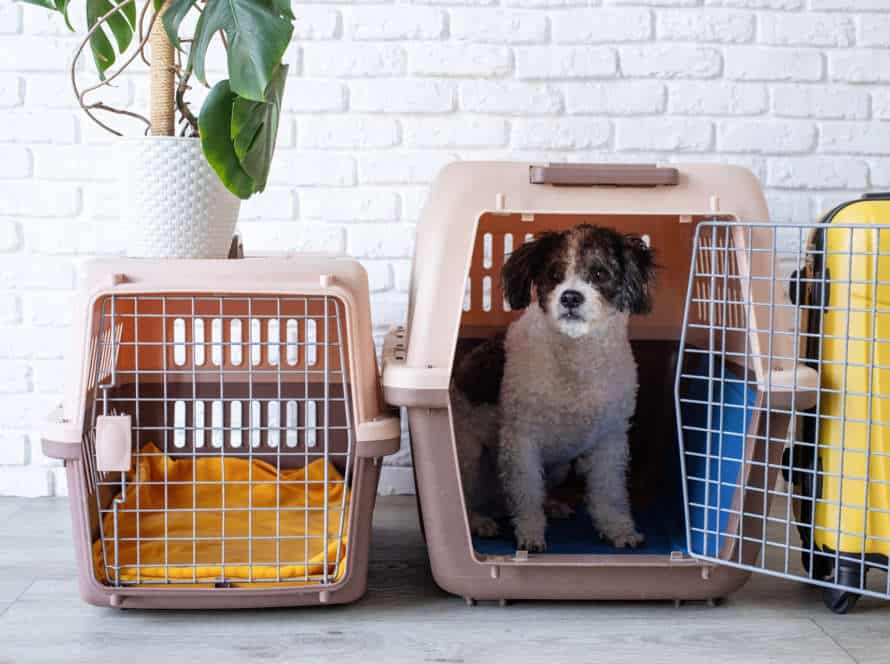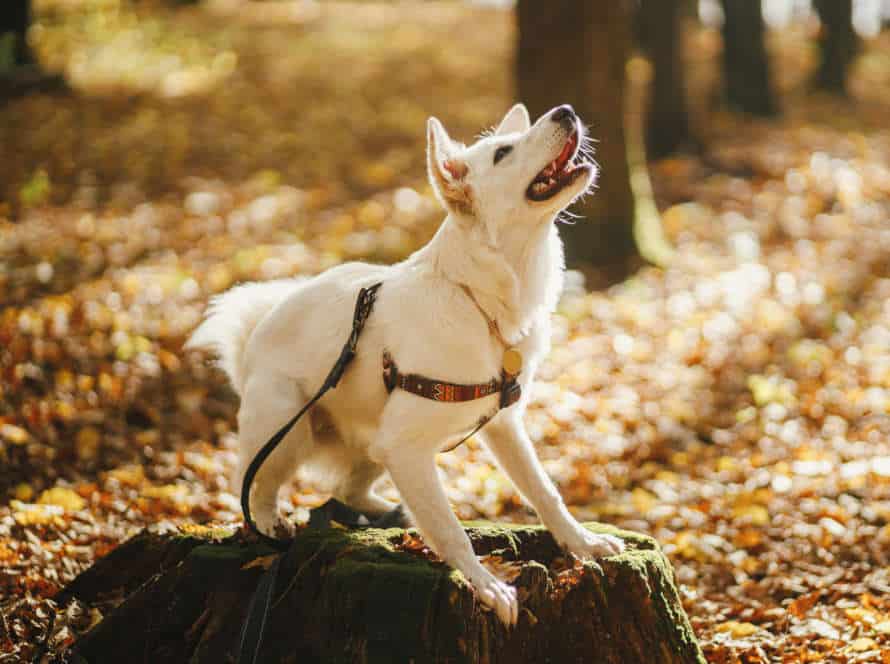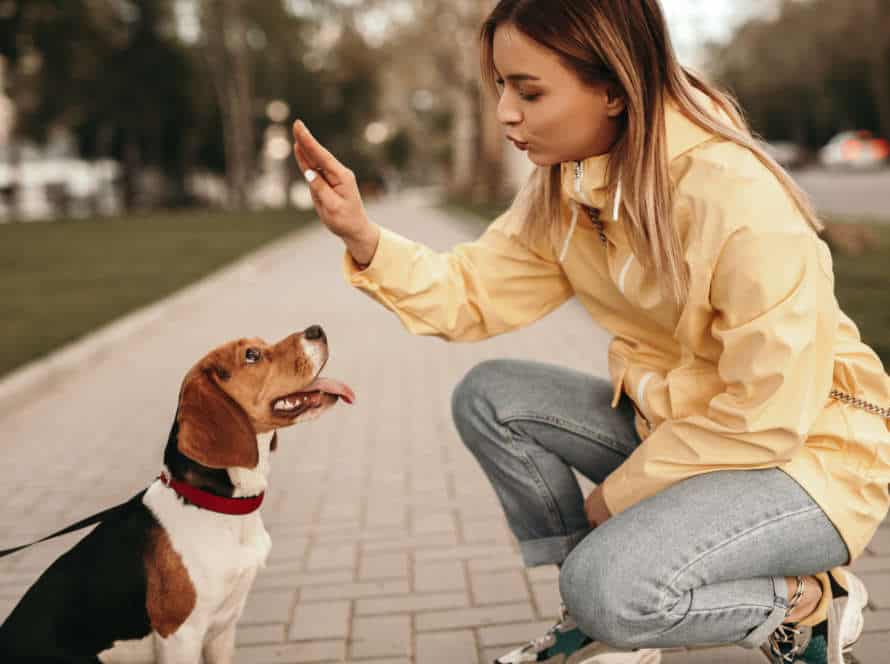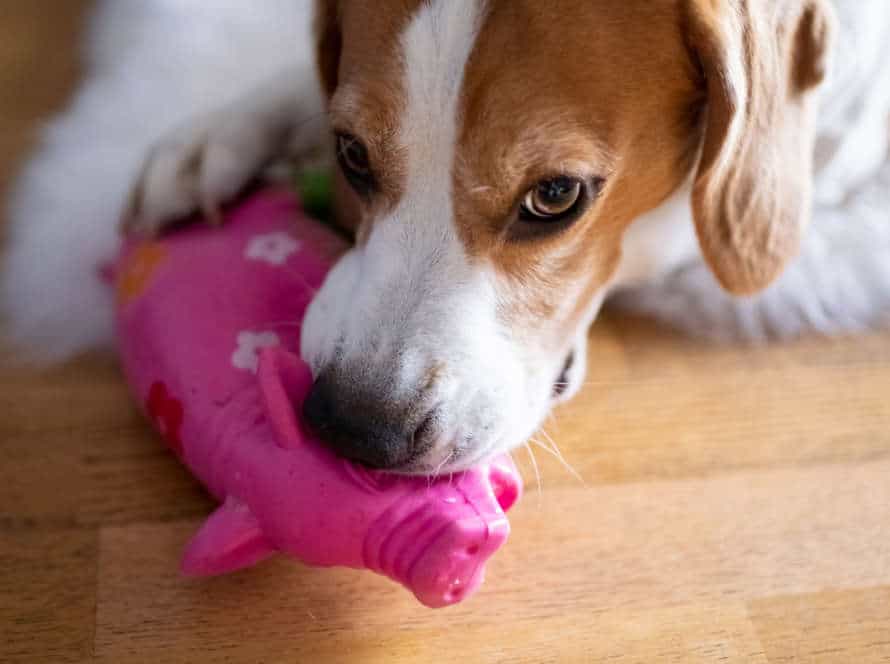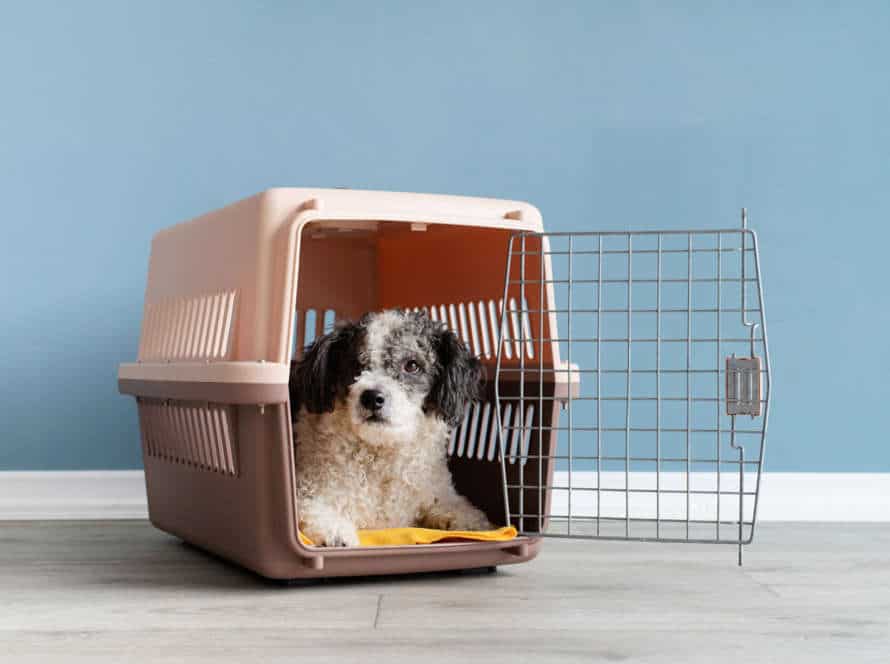How to Prevent Regression in Puppy Biting Training
Puppy biting is a normal behavior that needs proper training. But, puppies may not always keep their training and start biting. To stop regression in puppy biting training, here are some tips:
- Be consistent with rules and training techniques, so the pup doesn’t get mixed-up.
- Reward good behavior with treats, toys, and compliments.
- Don’t use physical force or aggression to stop puppies from biting; it could have the opposite effect and they may bite more.
- Don’t engage in rough play with your puppy; it could lead to biting.
- Socialize your puppy with other canines and people; this’ll help to stop aggression and territorial behavior.
Remember, training a pup takes effort and patience. If you use the right techniques and stay consistent, you can stop regression in puppy biting training.
Understanding Puppy Biting
Puppy biting can be normal. But, if not stopped, it can become a problem. To prevent it, we must understand why puppies bite. We will discuss the causes and methods to stop puppy biting in this article. Effective training can prevent regression in puppy biting.
Why do puppies bite?
Puppies often bite as part of their growth. Like babies, they explore their world with their mouths. Because puppies don’t have hands, they nibble or bite things. If this behavior isn’t addressed, it may continue into adulthood.
Here are some reasons why puppies bite:
- Teething: They chew and bite to ease soreness.
- Playfulness: Biting can be a form of play.
- Attention: They may bite to get attention or something they want.
- Anxiety: Biting can be a sign of anxiety or fear.
To stop biting, understand why it’s happening. Use positive reinforcement techniques and give the puppy plenty of chew toys. Teach soft mouth behavior by praising and rewarding gentle holds.
What is normal biting behaviour?
Puppies explore the world through biting. But, it can cause problems when they bite people or other animals. This is a normal behavior; like mouthing, nibbling, and learning to not bite too hard with littermates and adult dogs.
To stop this behavior, provide chew toys and redirect your pup. Let them socialize and be around people and other animals. Consistent training and patience is important. If biting still persists, seek help from a professional.
What is aggressive biting behaviour?
Aggressive biting is when a puppy bites with the intention to cause harm. This can happen if the pup hasn’t been trained or socialized properly, or has been in an upsetting situation.
To avoid regression in biting behaviour, these tips can help:
- Start early with training.
- Reward good behaviour with positive reinforcement.
- Give chew toys to distract and satisfy chewing needs.
- Don’t use physical punishment – this can make the biting worse.
- If you need help, find a professional dog trainer or behaviourist.
Remember: Consistency is important. Set clear rules and stick to them to prevent regression in biting.
Establishing Positive Reinforcement
Puppy biting training needs positive reinforcement. Reward your pup when they do what you desire. You can give treats, praise, or cuddles. Setting up rewards the right way is key to stop the pup from going back to the bad behavior. Let’s look at the specifics.
Reward-based training
Reward-based training is an awesome way to bond with your pup and stop them from biting. Here are some tips:
- Give treats, toys, and compliments when they do something good, like licking instead of biting.
- Be consistent in your methods when training.
- Start training as soon as possible, to avoid unwanted habits.
- Make a space free from distractions and hazards for training.
- Rejoice in your pup’s progress and successes to keep them keen.
Pro tip: If biting continues, consider seeking help from a professional dog trainer who knows positive reinforcement.
Clicker training
Clicker training is a great way to train puppies. It’s a powerful and positive reinforcement technique. This method focuses on reinforcing good behavior and avoiding regression in biting.
To use clicker training, pick a behavior you want your pup to do. Then, give a command to start it.
When they do it, make a clicking sound with a clicker and offer a treat as a reward. Keep repeating this with different behaviors until they link the clicking sound to the reward.
It’s a positive way to train and prevents regression in their biting training. Remember: Always give treats right after the click to create a positive link.
Consistency and repetition
For successful puppy biting training, consistency and repetition with positive reinforcement is essential. Here are a few tips to help:
- Set clear rules and stay consistent. This avoids confusion and makes training simpler.
- Have short, frequent training sessions. This helps your pup remember more and progress quicker.
- Use positive reinforcement. Reward your pup with treats, praise, and playtime. This will motivate them to continue behaving well, and make training fun for both of you.
By consistently using positive reinforcement, you can effectively prevent negative behaviors and increase the success of training. Pro Tip: Be patient, persistent and always encourage your puppy.
Training Techniques
Regression can be a major issue when training puppies not to bite. To stop this from happening, the right techniques must be used. Let’s take a look at the different approaches for puppy biting training and the methods you can use to avoid regression.
Bite inhibition
Bite inhibition is a key skill to teach puppies. Dogs without it may be aggressive and dangerous. Here are some training techniques to stop regression in puppy biting:
- Gradual Bite Inhibition: Reduce mouthing pressure and intensity with practice. This toughens the skin and makes the pup’s mouth softer.
- Substitution: Replace biting with other activities, like fetch or tug-of-war. These show puppies that play can be fun without biting.
- Reinforcement and Positive Interactions: Reward good behavior and positive interactions with treats, toys and praise. This encourages puppies to focus on non-aggressive behavior.
Pro Tip: Bite inhibition takes patience and commitment. Start early and stay focused on training for long-term success.
Redirecting biting to appropriate toys
Puppy biting is a phase all puppies go through. Redirecting their biting to toys is the best way to train them. Here are some steps:
- Keep chew toys around.
- Don’t play too rough with them.
- Say “no” when they bite.
- Reward them when they chew toys instead of furniture or hands.
- Be patient during training. It’ll take time for them to learn.
Using positive reinforcement for good behaviour
Positive reinforcement is a great way to promote and maintain good behaviors in your pup while training them. This technique gives rewards for desirable behaviors instead of punishing the bad ones. Here’s how to use it for puppy biting training:
- Encourage good behavior with praise, attention or a treat.
- Redirect the puppy’s biting towards appropriate chew toys.
- No physical punishment or negative reinforcement like yelling, hitting or scolding.
- Be consistent with training and reward the pup instantly after good behavior.
Training them with positive reinforcement will help them learn faster and build a stronger bond. Pro tip – Patience and persistence are key. Training a pup takes time and effort, but it’s worth it in the end.
Common Training Mistakes to Avoid
Training puppies not to bite is a messy process. If done wrong, it can lead to regression. To avoid this, it’s important to recognize common errors in the training process. Here are some of the most frequent mistakes. Plus, how to prevent them. Let’s dive in and learn more.
Letting puppy biting become a game
Avoiding the mistake of letting puppy biting become a game is key when it comes to puppy training.
If you let your puppy bite your hands or clothes, they may think it’s okay to bite during playtime.
This could lead to aggressive biting in the future, making it hard to unlearn this habit.
Redirect their biting by offering them chew toys or bones instead.
When they start to bite you or your clothes, stop playing with them.
Consistency is vital to make progress in puppy training, and avoiding this mistake will help!
Ignoring positive behaviour
Ignoring good behavior is a mistake to dodge when training puppies to not bite. It’s important to give rewards and pay no mind to the unwanted behaviour so that the puppy knows what’s expected.
Why? Because puppies learn by association. If you ignore the good, you miss out on reinforcing it. Plus, pups love attention. If you only pay attention when they act up, they might keep doing it to get your attention.
So, use positive reinforcement! Give treats or praise for good behaviour, redirect biting to chew toys, and use time-outs for biting. By honouring good behaviour and ignoring the bad, the puppy can learn how to behave around you and others.
Using punishment-based training techniques
Using punishment-based training for puppy biting can have bad outcomes. This includes hitting or yelling, which can make your pup scared and aggressive.
Positive reinforcement works better. Give treats and praise when your pup behaves well. Redirecting attention to a toy also helps to stop biting.
Consistency and patience are essential. Avoid punishment-based techniques to prevent going backwards in your pup’s progress.
Managing Regression in Puppy Biting Training
Puppy training can be thrilling as well as a challenge. A key struggle is how to stop regression. This is when your pup learns something and then goes backwards. It’s important to be aware of the signs of regression and stop it. In this article, we’ll reveal the ways to address regression in puppy biting training.
Understanding that regression is normal
Regression is a natural part of puppy biting training. Recognize it early and take corrective measures to prevent it from becoming a habit. Here are some tips:
- Consistency – Ensure that everyone in the household is using the same rules and techniques.
- Positive Reinforcement – Reward your puppy with treats or praise when they don’t bite.
- Redirect – Give your pup a toy or bone to chew on instead.
- Timeouts – If biting continues, calmly place them in a timeout area for a few minutes.
- Understand that regression is normal.
These techniques will help you manage and prevent regression during your puppy’s training.
Identifying triggers for regression
Recognizing triggers for going back to bad habits is key to avoiding regression in puppy biting instruction. Here are some triggers and how to manage them:
- Stress: Puppies can get stressed from changes in their surroundings or plan. To manage, give a steady routine, a pleasant sleep spot, and lots of physical activity and play.
- Boredom: Puppies can be bored when not mentally or physically active. To cope, give interactive toys, instruction sessions, and socialization with other pups.
- Inconsistent Training: Unstable training can lead to fumble and no progress. To manage, have a clear and steady plan and use positive reinforcement.
- Illness: Illness can mean no appetite, low energy, and changes in behavior. To manage, get vet help and re-arrange the pup’s routine and training.
Incorporating positive reinforcement throughout the puppy’s life
Use positive reinforcement to help stop puppy biting. This includes rewards for good behavior and redirecting bad behavior.
Treats and praise are great rewards for good behavior, such as sitting, heeling, and coming when called. If your pup is biting or chewing on household items, provide them with an appropriate chew toy or treat.
Consistency in training is important to set clear boundaries and expectations. Exercise and playtime can tire out your pup, making them less likely to act out.
Remember, training is an ongoing process and positive reinforcement should be used throughout the pup’s life to keep good behavior and avoid regression.
Frequently Asked Questions
Q: How long does it take to train a puppy not to bite?
A: The duration of puppy biting training varies from puppy to puppy, but typically takes around 2-4 weeks of consistent and patient training.
Q: What are some common mistakes to avoid during puppy biting training?
A: One common mistake is rough play, as it can encourage biting behavior. Additionally, inconsistent training and punishment can confuse the puppy and make the training process more difficult.
Q: How can I redirect my puppy’s biting behavior?
A: Providing your puppy with appropriate chew toys and redirecting their attention to them when they begin biting can be an effective way to redirect their behavior. You can also use a firm “no” command and provide positive reinforcement when they stop biting.
Q: Is it okay for my puppy to chew on my fingers during play time?
A: No, it is important to establish clear boundaries with your puppy during play time to prevent them from developing a habit of biting. Encourage play with appropriate chew toys instead.
Q: Why is consistency important in puppy biting training?
A: Consistency is crucial in puppy biting training because it helps the puppy establish clear boundaries and understand what is acceptable behavior. Inconsistent training can confuse the puppy and make the training process more difficult.
Q: Should I seek professional help for puppy biting training?
A: If you are having difficulty with puppy biting training or if your puppy is exhibiting aggressive behavior, it may be necessary to seek professional help from a trainer or behaviorist.


